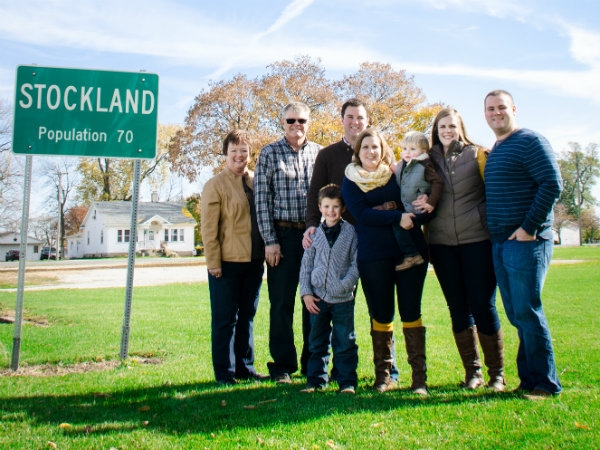 Farming has always been a family affair, with traditions passed down and legacies created.
Farming has always been a family affair, with traditions passed down and legacies created.
The Cheever family, third-generation farmers on one of Illinois’ Sesquicentennial Farms, tends fields with their son, Dexter, and a hope their grandsons will carry on the legacy.
Harvest, a particularly stressful time of year, keeps safety at the forefront but also brings back sad memories. Ten years ago, Craig watched a worker die from a heart attack while operating a tractor. His wife, Penny, recalls that day vividly.
“Craig called 911, but seemed to lose all sense of being. The dispatcher needed vital, helpful information on how to locate them, but Craig just needed help quickly,” Penny said.
 To shed the light on the importance of safety on farms, National Farm Safety and Health Week, promotes a 75-year tradition of educating and celebrating safety’s relevance in agriculture. Last year during this important week, a safety message from Carle’s Center for Rural Health & Farm Safety (RHFS) on a local radio station prompted the Cheever family to take action.
To shed the light on the importance of safety on farms, National Farm Safety and Health Week, promotes a 75-year tradition of educating and celebrating safety’s relevance in agriculture. Last year during this important week, a safety message from Carle’s Center for Rural Health & Farm Safety (RHFS) on a local radio station prompted the Cheever family to take action.
They created farm-property maps that provide written directions to all parts of the farm, especially fields with no known address, so first responders can quickly find farmers during emergencies.
Penny’s even inspiring others.
“Our neighbor took the initiative this fall to be better prepared, and I want others to take the time, too,” she said. “The forms don’t take long to prepare – less than 30 minutes.”
Today the Cheever’s have laminated location maps in all farm vehicles, semi, tractor, pick-ups and combines.
“With seven or eight locations around the township, all employees can’t be familiar with every area. Written instructions keep us calm when the adrenaline is pumping,” she said. “You never know where you’ll be or who you’re with when an emergency strikes. This tool can save your life or a loved one,” she said.
.jpg) Licensed clinical social worker Linda Culton says mental health is just as vital as physical safety in the farming profession. Openly talking about stresses and struggles is the first step in reducing an alarming new trend.
Licensed clinical social worker Linda Culton says mental health is just as vital as physical safety in the farming profession. Openly talking about stresses and struggles is the first step in reducing an alarming new trend.
Farming has one of the highest occupational suicide rates because of rising stress and financial pressures. Isolation and lack of access to mental health care in rural areas can contribute.
“Stress is normal especially for farmers who deal with unpredictable weather and markets,” Amy Rademaker, RHFS specialist, said. “Farmers are also extremely self-reliant so talking about emotions or pressures can be challenging.”
Calling upon the farming community – friends, neighbors or clergy makes a difference in managing stressful situations and crisis.
“If your family loses you, they may also lose the farm. Be sure you are safe and healthy,” Rademaker said.
Resources are available.
“Farmers extend a great deal of energy caring for their land, livestock, machinery and family. As good as agricultural producers are in caring for others, they are not always as careful in taking care of themselves,” Rademaker said.
Categories: Staying Healthy, Community
Tags: Carle, Champaign-Urbana, farm safety, farming, giving, rural health, Rural Health and Farm Safety, safety, stress
